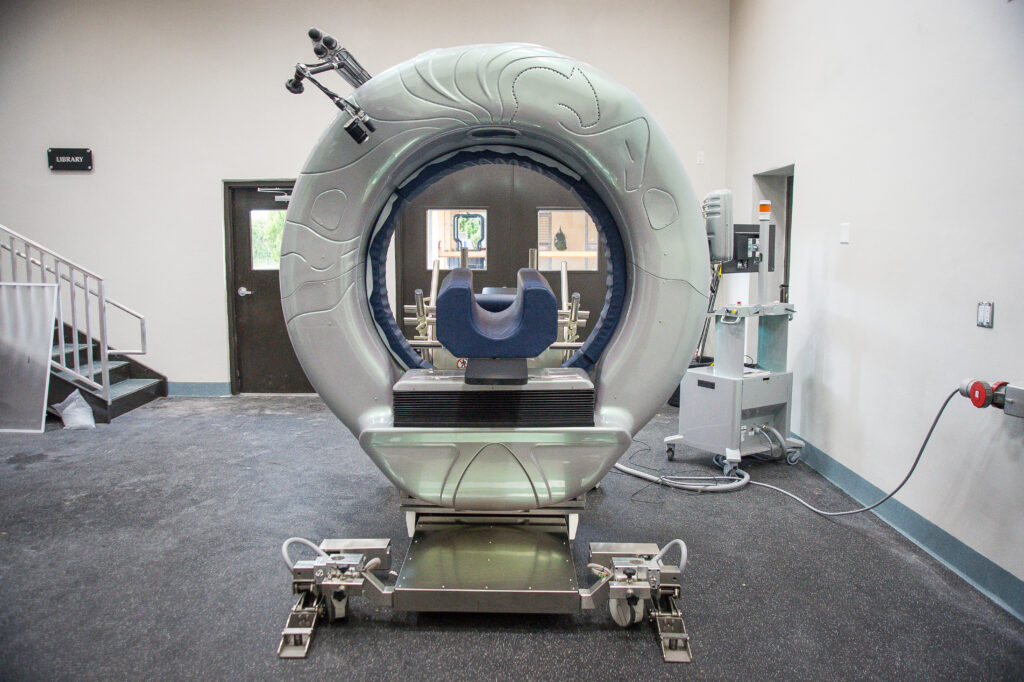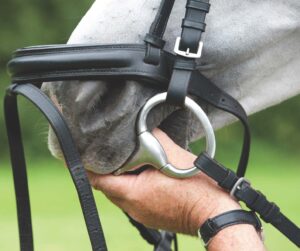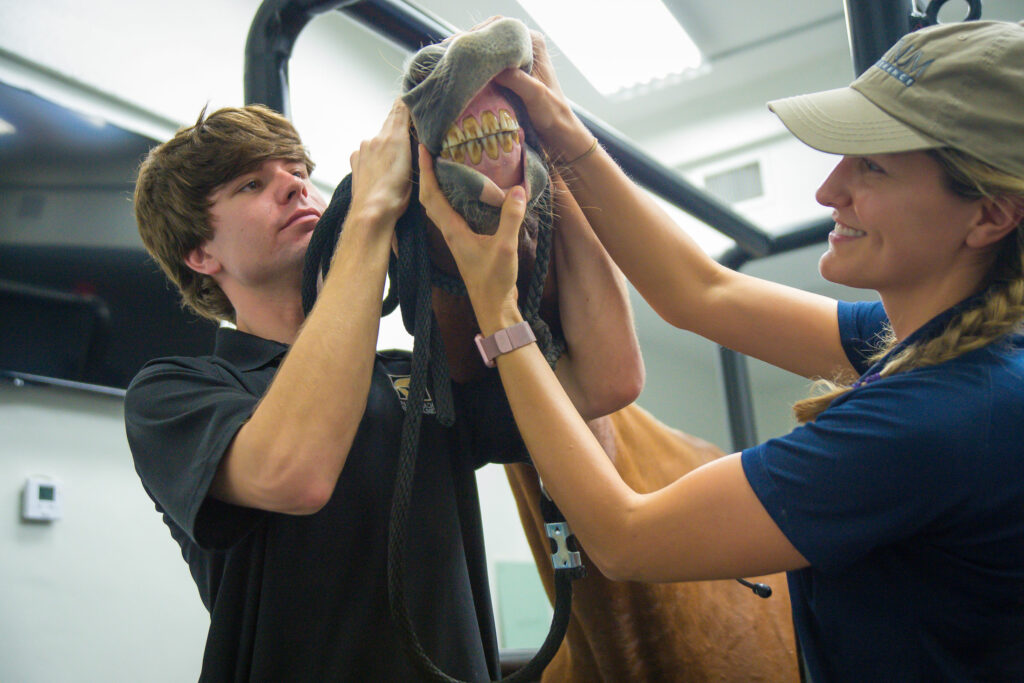A Healthy Mouth is a Supple Mouth
Healthcare Reminder: Equine Dentistry
The general goals of equine dentistry may appear straight-forward but include a complex system of evaluations that in turn affect the entire body and well-being of a horse. At its core, equine dentistry encompasses the objectives of maintaining even tooth wear, treating infection or disease, allowing for proper digestion, and promoting longevity. Dr. Tyler Davis of Palm Beach Equine Clinic says that routine and thorough dental exams can help prevent many issues from ever becoming problems.
Why do horses require dental care?
Horses grind their food into a finely masticated bolus before swallowing. The combination of a horse’s upper jaw being larger than the lower jaw, and the fact that a horse chews by moving their jaws from side to side results in uneven wear of the teeth. This uneven wear may cause sharp edges to form, which hinder efficient chewing and may ulcerate or tear the cheeks and tongue. Uneven wear can also cause the horse to swallow food that isn’t properly chewed and can lead to more daunting problems such as colic.
No horse is exempt from needing their teeth cared for by a veterinarian. For sport horses, however, dental care becomes even more crucial. Much of the connection between horse and rider comes by way of the horse’s mouth, and depending on the discipline, the horse may always have pressure in their mouth. If there are problems or discomfort within the mouth, it can become evident in the horse’s performance and disposition under saddle.
According to Dr. Davis, having a horse’s teeth in perfect shape allows one to immediately rule out dental issues when trying to troubleshoot a performance problem. A “sound mouth” also allows the best condition for supple, soft, and accurate connections between horse and rider through the bridle.
What is floating?
On a basic level, most horses require a routine float. Floating is the term for rasping or filing a horse’s teeth to ensure an even, properly aligned bite plane. While floating is the physical process, the scope of equine dentistry is much broader and examines the horse’s overall health as influenced by the mouth.
“A proper dental exam using a lightweight speculum, a very good light source, and a dental mirror allows me to see any possible problems and prevent those problems from becoming painful and affecting a horse’s performance and overall health,” said Dr. Davis.
How often should you have a veterinarian perform a routine dental exam on your horse?
Dr. Davis recommends an exam every 12 months at a minimum. For many sport horses, the demands of their competition schedule may require bi-yearly exams to prevent any problems that could sideline them from training or events. Lastly, any horse with a history of dental problems may require exams every three to four months. Without routine dental exams by a veterinarian, uneven wear can escalate to a serious health problem.
The most common signs of dental discomfort in horses include:
- head-tilting and tossing
- difficulty chewing
- bit-chewing and tongue lolling
- tail-wringing, bucking and other behavioral issues
- drooling and bad breath
- (sometimes) weight loss and spillage of grain
Technological Advances
While it is the owner’s responsibility to develop a diligent care routine, the veterinary community has done its part by continuously improving evaluation and diagnostic technology. Advances in instruments, such as the speculum and imaging technologies, allow veterinarians to better understand and examine the equine mouth. In turn, they are able to diagnose and treat dental problems more effectively.
Equine dental health is far more involved than simply evaluation the outward appearance of the teeth. While trained eyes can see external problems, and educated hands can feel for abnormalities, assessing internal issues can be done through diagnostic imaging. Improved imaging technology has greatly expanded Dr. Davis’ ability to find and analyze unseen problems in the mouth.

Portable imaging technology, such as digital radiography (x-rays) allows him to conveniently understand dental pathology better for his patients in the field. While Standing Computed Tomography (CT) allows Dr. Davis to capture a comprehensive, multiplanar profile of all the structures within the horse’s head, with the horse only lightly sedated.
“Having these advanced imaging modalities available for my patients allows us to thoroughly identify an issue and then intervene as early as possible to treat the issue, relieve discomfort, or prevent tooth loss,” commented Dr. Davis.
Contact your veterinarian at Palm Beach Equine Clinic for more information on equine dentistry, or to schedule a dental exam, at 561-793-1599.
Get in Touch with Palm Beach Equine Clinic
Contact us by filling out this form.


